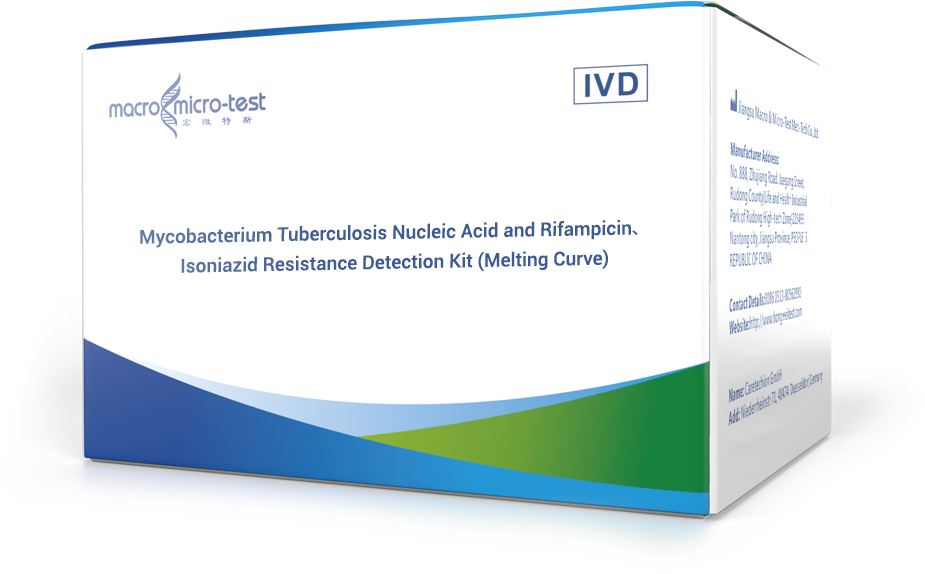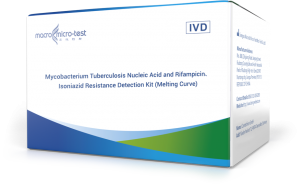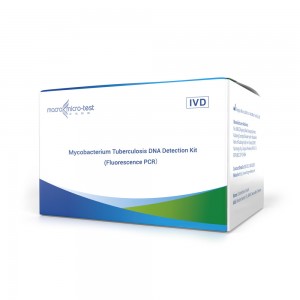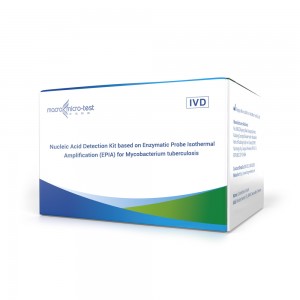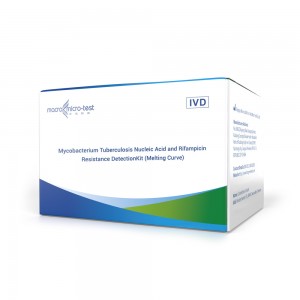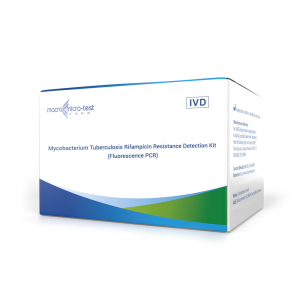Mycobacterium Tuberculosis Nucleic Acid and Rifampicin(RIF),Resistance(INH)
Product name
HWTS-RT147 Mycobacterium Tuberculosis Nucleic Acid and Rifampicin(RIF), (INH) Detection Kit (Melting Curve)
Epidemiology
Mycobacterium tuberculosis, shortly as Tubercle bacillus (TB), is the pathogenic bacterium that causes tuberculosis, and currently, the commonly used first-line anti-tuberculosis drugs include isoniazid, rifampicin and ethambutol, etc[1]. However, due to the incorrect use of anti-tuberculosis drugs and the characteristics of the cell wall structure of mycobacterium tuberculosis itself, mycobacterium tuberculosis has developed drug resistance to anti-tuberculosis drugs, and a particularly dangerous form is multidrug-resistant tuberculosis (MDR-TB), which is resistant to the two most common and effective drugs, rifampicin and isoniazid[2].
The problem of tuberculosis drug resistance exists in all countries surveyed by the WHO. In order to provide more accurate treatment plans for tuberculosis patients, it is necessary to detect resistance to anti-tuberculosis drugs, especially rifampicin resistance, which has become a diagnostic step recommended by the WHO in the treatment of tuberculosis[3]. Although the discovery of rifampicin resistance is almost equivalent to the discovery of MDR-TB, only detecting rifampicin resistance ignores patients with mono-resistant INH (referring resistance to isoniazid but sensitive to rifampicin) and mono-resistant rifampicin (sensitivity to isoniazid but resistance to rifampicin), which may lead to patients subjected to unreasonable initial treatment regimens. Therefore, isoniazid and rifampicin resistance testings are minimum necessary requirements in all DR-TB control programmes[4].
Technical Parameters
| Storage |
≤-18℃ |
| Shelf-life | 12 months |
| Specimen Type | Sputum Sample, Solid Culture (L-J Medium), Liquid Culture (MGIT Medium) |
| CV | <5.0% |
| LoD | The LoD of the kit for detecting Mycobacterium tuberculosis is 10 bacteria/mL; the LoD of the kit for detecting rifampicin wild type and mutant type is 150 bacteria/mL;
the LoD of the kit for detecting isoniazid wild type and mutant type is 200 bacteria/mL. |
|
Specificity |
1) There is no cross reaction when using the kit to detect human genomic DNA (500ng), other 28 types of respiratory pathogens, and 29 types of non-tuberculous mycobacteria (as shown in Table 3).2) There is no cross reaction when using the kit to detect the mutation sites of other drug-resistant genes of rifampicin and isoniazid sensitive Mycobacterium tuberculosis (as shown in Table 4).3) Common interfering substances in the samples to be tested, such as rifampicin (9mg/L), isoniazid (12mg/L), ethambutol (8mg/L), amoxicillin (11mg/L), oxymetazoline (1mg/L), mupirocin (20mg/L), pyrazinamide (45mg/L), zanamivir (0.5mg/L), dexamethasone (20mg/L) drugs, have no effect on the kit test results. |
| Applicable Instruments | SLAN-96P Real-Time PCR Systems (Hongshi Medical Technology Co., Ltd.),
BioRad CFX96 Real-Time PCR System |

